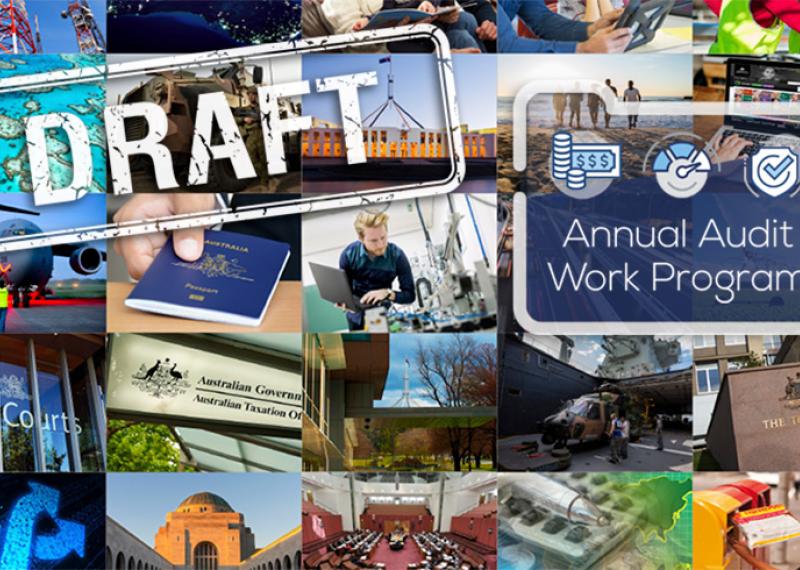Browse our range of reports and publications including performance and financial statement audit reports, assurance review reports, information reports and annual reports.
Draft 2025–26 Annual Audit Work Program

The draft annual audit work program for 2025–26 containing potential performance audit coverage for the 2025–26 financial year was published on the ANAO website for public review and comment between 17 March 2025 and 11 April 2025.
Once all feedback has been reviewed and the Auditor-General has finalised the Annual Audit Work Program 2025–26, it will be published on the ANAO website.